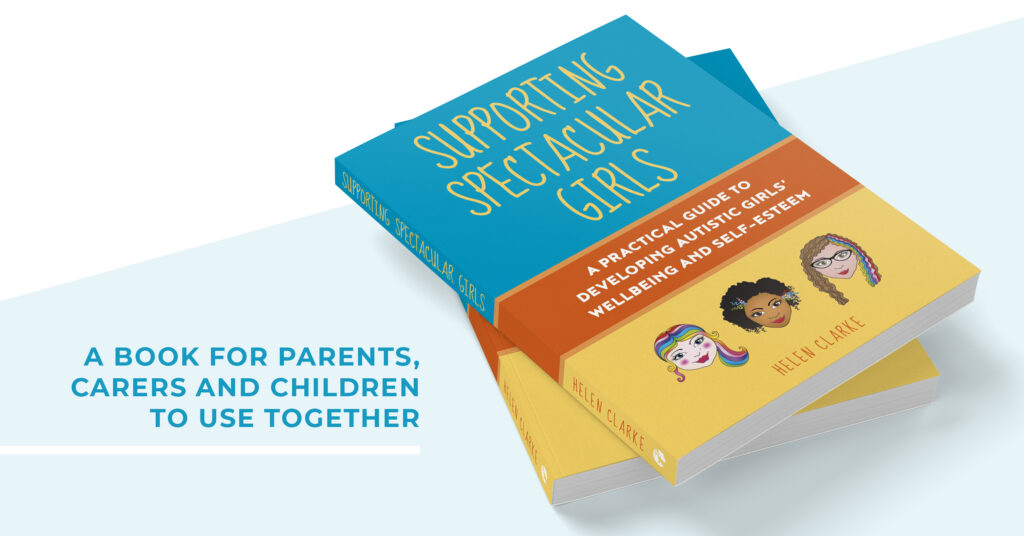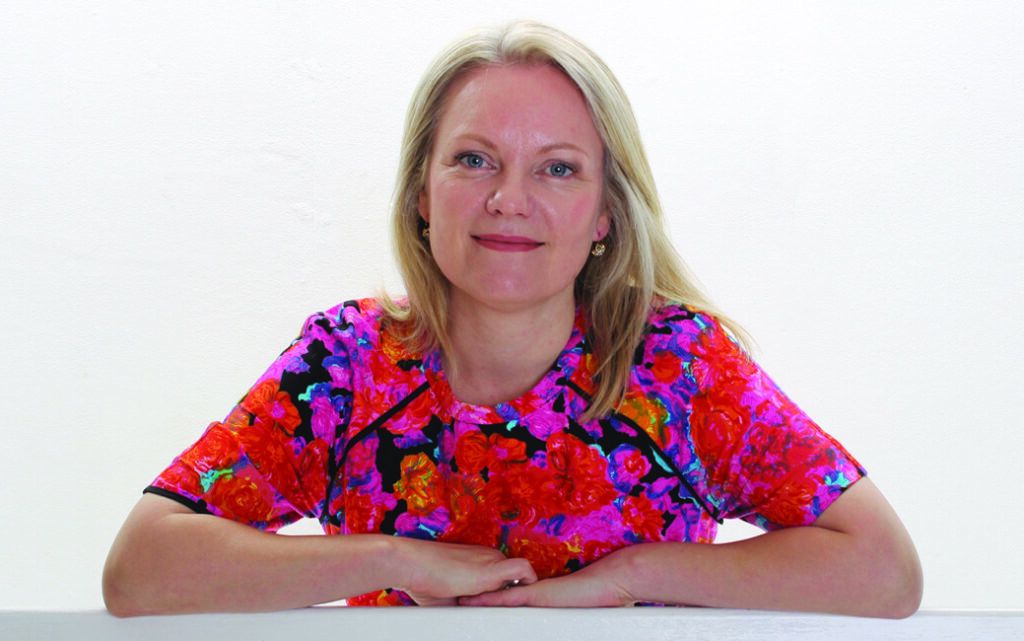New book Supporting Spectacular Girls is written by Helen Clarke, who worked as a teacher of autistic children for 20 years and now runs her own autism consultancy. This blog piece is taken from the book’s foreword written by Dr. Rebecca Wood, author of Inclusive Education for Autistic Children.
It can sometimes seem like the more that we talk about autism, the more that, large swathes of the autistic population disappear from view. This particularly applies to autistic people who do not communicate primarily through speech, those with high support needs (especially if they live in residential care), older autistic people, those with co-occurring conditions and autistic professionals outside of the tech industry or office spaces.

As far as girls and women are concerned, there has been, in recent years, a growing recognition that far more are autistic than previously thought, and the perception that autistic people are predominantly male is increasingly rejected. This in turn leads to more complexities, however, as uncertainties remain as to whether autistic women continue to be viewed through a male lens, or if understanding autistic women on their own terms could, and should, lead us all to understand autism better. Not only this, but as our conceptualization of gender shifts with the recognition that many people do not identify in binary terms, the impact of these understandings on how we value, relate to and support autistic people is still poorly appreciated.
One issue is clear, however, and that is we are still falling short in our education system in terms of enabling positive participation and outcomes for autistic children and young people in school. Far too many autistic young people experience multiple forms of exclusion, as well as acute anxiety and stress in the school environment when they do attend. Notwithstanding an appreciation of the complexities of gender, we still have a limited understanding of how these issues impact on autistic girls in particular, as the predominance of the ‘male model’ of autism stubbornly perpetuates.
Helen Clarke’s detailed and empathetic book addresses this gap in our knowledge, as she provides information and clear strategies on how to understand, support and appreciate autistic girls aged 11–15. Underpinned by a wealth of research evidence, as well as her own experiences as an autistic woman and a teacher, Helen offers invaluable insights and advice on different aspects of the lifeworld of autistic girls, while being careful to not over-generalize and to signpost to further sources of information when needed.

Each of the seven chapters has an imperative as its title, such as ‘Be Healthy’, underscoring the emphasis Helen places on the rights autistic girls have to be happy, safe and well, and in so doing, to be themselves. In this, the author has neatly eschewed the typical emphasis in our schools on using interventions to somehow remediate the presumed impairments associated with autism, focusing instead on their unique and individual qualities, and how autistic girls can be helped to flourish in school. For example, while acknowledging fully that autistic girls may well require support in a number of areas, Helen underlines the importance of autistic role models, a topic dear to my own heart due to the Autistic School Staff Project which I lead.
This carefully researched book has been written in an accessible manner and could be enjoyed as a single read-through or dipped into for information and strategies. Interwoven with examples from the author’s own personal and professional experiences, this book is full of insights and practical tips which would be of great benefit to all who work with autistic girls, particularly in school settings. Above all, this book has been written with sensitivity and warmth, and so I hope that some autistic girls read it too, as this excellent resource would surely reassure them that they are no longer invisible, but instead understood and appreciated, and by extension empowered, through its contents.
You can find this book at JKP.com or wherever you buy books. If you would like to read more articles like this and get the latest news and offers on our books about autism, why not join our mailing list? You may also be interested in our Facebook page or Twitter page.